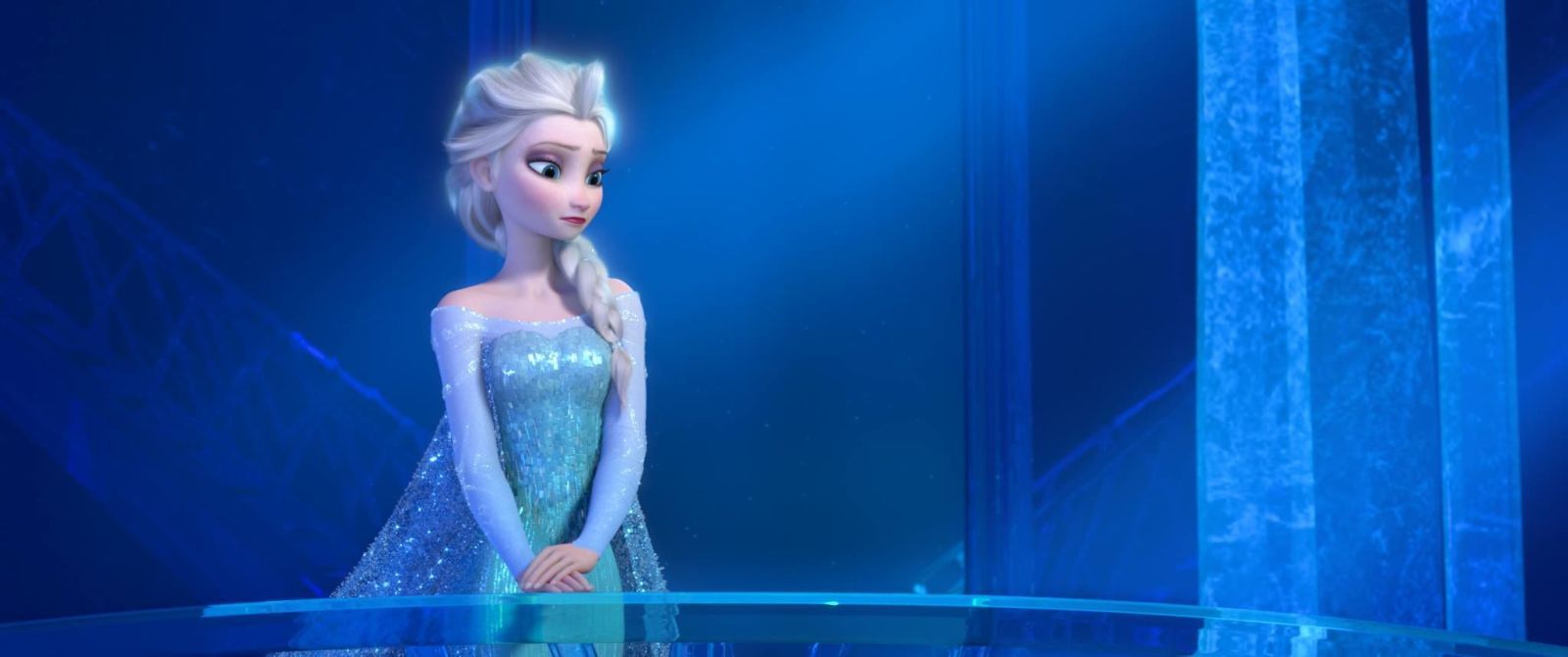
Lesbian, gay, bisexual, transgender, intersex and questioning (LGBTIQ) characters are peculiarly absent from animated feature films produced by Disney, despite the fact that Disney has a huge queer following.
The current #GiveElsaAGirlfriend Twitter-storm, which encourages Disney to make Elsa, Frozen's Snow Queen, come out in the movie's sequel, only attests to this situation. However, turning the queer subtext into text as a mere retrospective intervention does not do away with the fact that, in Frozen—as it was shown in cinemas, as it came out on DVD, as it was marketed and merchandised, as it became the biggest animated box office success in the history of cinema, as it is engrained in our collective memory—just like in other Disney films, there were no explicit queer characters.
Tweets like: "1 in 5 kids are queer, but only 1 in 10 feel safe enough to come out," or "Normalizing a f/f relationship will help queer young kids accept & understand their sexuality," or "A gay Disney princess would have helped me feel so much more normal when I was younger" point out the importance of fair and open representation for those growing up queer in a world that inscribes them with the insignia of repudiated otherness.
Additionally, a company that prides itself on producing media for "the whole family" should, by now, have acknowledged that the term "family" is much more diverse and multifarious than what is portrayed in Disney narratives. Even if Disney would alienate a small segment of conservative viewers by including non-straight or non-cis representation in their films (in case they have not already been alienated, since films like Frozen and Brave have always played upon a "coming out" subtext and have already received criticism from the right), it would certainly appeal to families who have not been represented at this point, as well as their allies. Assuming the number of those celebrating or at least accepting queer representation on screen exceeds that of those opposing it, the time is certainly ripe for a gay princess.
There are indeed no out and open gay main characters in Frozen (in one shot that lasts mere seconds, the innkeeper's family in the sauna could be seen as his husband and their four kids). There are no bisexual or trans or asexual or genderqueer characters, either. Culturally, white gay men are the most visible and most politically successful segment of the LGBTIQ population. They are also the most economically powerful segment. Unsurprisingly, they are the ones most likely to be addressed and represented in pop culture. However, if we are serious about LGBTIQ issues, gay issues cannot be the only issues to think about, to talk about, to campaign for. When demanding more positive LGBTIQ representations, more is at stake than just a replacement of different-sex with same-sex romance.
Yes, Disney texts are in desperate need for more queer (and not just gay) representation. Yes, queer people (especially young queer people) are in need of more positive sources of identification in all kinds of pop cultural media. Yes, adding the layer of explicit (rather than implicit) gayness to Frozen's narrative by "giving Elsa a girlfriend" might be a step in the right direction. It might also be a weak compromise.
Indeed, straight and cisgender people have been represented in Disney's animated feature films since 1937. Heterosexual romance has been given a—if not the—central role in Disney narratives since then. Homosexual romance and LGBTIQs deserve the exact same space in these narratives, on screen, in society.
Other than "giving Elsa a girlfriend" retrospectively, queers deserve a film featuring an other-than-straight or other-than-cisgender character from the start, and no less than a main character in no less than a major film. They deserve this protagonist to be visibly out and proud on screen, not as a post scriptum addition to an already existing, self-contained heteronormative narrative. They deserve this protagonist to be represented in cinema as undoubtedly and unapologetically queer—not only in the form of subtextual codification or in the form of allusions to camp sensibility, like Disney frequently does in its portrayal of villains or comic relief characters; not only in the form of more or less subtly connoting coming-out narratives; and not only in a sequel.
By all means, Disney, give Elsa her girlfriend in Frozen 2. But more importantly, give queer characters (of all the colors of the rainbow) their screen time in your films from the get-go.
Beatrice Frasl is a junior fellow at the International Research Center for Cultural Studies (IFK) in Vienna, Austria. She is currently writing a Ph.D. thesis on the subject of heteronormativity in Disney films.
Uncommon Knowledge
Newsweek is committed to challenging conventional wisdom and finding connections in the search for common ground.
Newsweek is committed to challenging conventional wisdom and finding connections in the search for common ground.
About the writer
To read how Newsweek uses AI as a newsroom tool, Click here.








